Hang on, what’s going on with China & Big Tech? – Joe B. – Medium

Author’s Notes: While writing this article, I came across what could be a much bigger possible issue than we had initially thought. What started with a curious string of events regarding controversial censorship decisions, lead us to something far more interesting. Please note as well that throughout this article, we discuss the banning of certain types of somewhat controversial — albeit legal (mostly importantly) — art.The discussion of this ban is not a reference to the morality or the authors’ personal opinions or otherwise on the art in question. The basis for this discussion is presented as is, and solely the timing of this as it fits into the scope of the article.
Editor’s Note from Nick Monroe: You’d be a fool to believe that China is in isolation from the rest of the world. In our interconnected social media age, China’s influence from the other side of the globe is an important factor to consider for the West. While untangling the Discord dilemma I got in contact with “Bonesy”. What he pointed out to me struck a nerve that’s at the center of the censorship disaster going on these days. We have no idea why Discord’s terms of service was authored like it was. Can something like a terms of service be influenced by investors? This piece by him is an exploration into answering questions like this. A thoughtful effort of trying to comprehend a system of influence. I’m glad to have helped him flesh his piece out, and the end product here is worth your consideration.
 Image Source: http://knowledge.ckgsb.edu.cn/2015/01/19/finance-and-investment/is-there-a-chinese-silicon-valley/
Image Source: http://knowledge.ckgsb.edu.cn/2015/01/19/finance-and-investment/is-there-a-chinese-silicon-valley/The Big Idea
Recently, a string of seemingly innocuous — yet random — account suspensions on Reddit started me and a few friends down what turned out to be an oddly profound spiral of research. Unlike most one night rabbit holes, this ended up with one of the most horrifyingly latent elucidations that we could have possibly stumbled upon.
Before I proceed, I’d like to say that I’m not claiming any of this is necessarily “factual” in the sense of being the sole, undeniable reality of things. I am not being accusatory, or necessarily pointing fingers with blame, at any companies or their staff. I do know the old saying “correlation does not equal causation” of course, so I want to add a disclaimer that the theories presented in this article are presented as is, based solely off of what conclusions can be drawn from the evidence at hand. There is a possibility we’re looking too far into things, and we’re off the mark; however, I’d like to think that when something happens with the sheer scope and repeated metronome as this, it’s too entangled to simply be brushed off as a mere coincidence. That said, I’m not necessarily suggesting that there’s a singular, wider conspiracy at play as much as I’m pointing out what could be a series of separate events, all connected by a singular, coincidentally overlapping subject, and the importance posed by these events individually. As they say after all, where there’s smoke, there’s fire. Now, to reiterate, I could be wrong about one case, I could be wrong about all of them; but the real issue here is that some of this — especially what we’ve found by accident as you’ll see— is demonstrably true. Not every nuance needs to necessarily connect to a singular overarching web for this to be a big deal; and you’ll see why. I admittedly do not have insider information, thus I can only make such assumptions from the outside, based on connecting the dots.
For background, I was stumbling through a subreddit dedicated to the sub-genre of video games called “visual novels”, when I found a post called “Anime Censorship hits Reddit”. The post pointed out the banning of a user who had posted an anime character in a swimsuit; something which has been a norm on subreddits such as r/anime, r/animemes, r/awwnime, and other communities based around the anime medium. It’s suggestive admittedly, but certainly not against any actual policies or laws. Looking through the thread, I saw a number of other users who appear to have been banned on February 8th as well — apparently for no real discernible reason, yet overlapping in the same form of posting history.
 Source: https://www.oneangrygamer.net/2019/02/reddit-bans-adult-loli-subs-new-game-anime-sub-for-featuring-suggestive-content-involving-minors/76652/
Source: https://www.oneangrygamer.net/2019/02/reddit-bans-adult-loli-subs-new-game-anime-sub-for-featuring-suggestive-content-involving-minors/76652/
Interestingly enough, this comes the same day as an announcement that Tencent — and possibly other Chinese firms — have lead an investment round into the social media company. As expected, this was not met with the warmest of welcomes on the front page of the website, with the following being pushed to r/popular (and similar content pushed tor/all) following the reports going public.

This all comes at an interesting time; recently, chat application, video game store, and Skype competitor Discord found itself embroiled in what’s been dubbed “The Discord Scandal”. To sum up the situation, which is quite complex (especially to those not as well versed with internet subcultures), Discord began allowing certain types of “questionable” adult content on its platform, while actively barring other types. The content in question? Well, that’s where it gets complicated — the Discord ToS describes it as pictures which depict minors, or specifically, a sub-genre of Anime art which pertains to young looking characters. This, on its own, is obviously not really an issue, and would seem like a logical thing from the outside looking in on first glance.
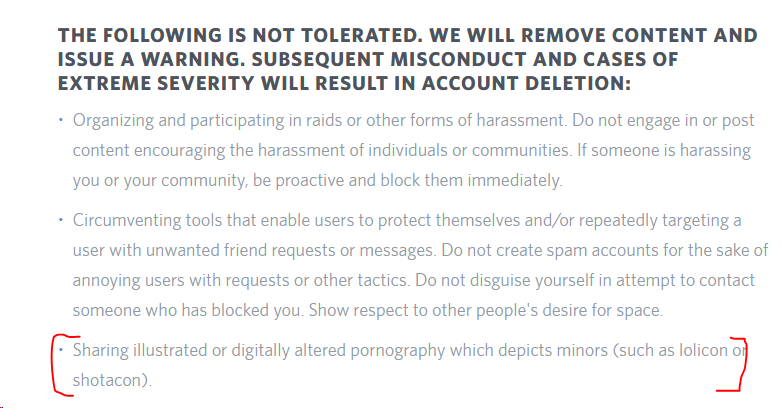 From Discord’s Terms of Service.
From Discord’s Terms of Service.
So then what’s the issue here exactly? To start, adouble standard was uncovered in the staff actively allowing art depicting minors, or rather, as long as the art in question was “Furry”. I won’t go too into the details of it (Freelance Journalist Nick Monroe has a comprehensive thread detailing it here), but this is very important to keep in mind contextually for the rest of this article.
In the overall, wider scheme of things, the allowance of (or lack thereof) adult content has been a hot button issue within the last year across the internet; Tumblr for example found itself banning “all adult content”, while Steam supposedly began to open its floodgates — before finding itself embroiled in a similar standard of vague inconsistency, not too far off from say, Discord’s. That said, what does all of this have to do with China, beyond the aforementioned investment of Tencent in Reddit and Discord? That’s where things get supremely interesting.
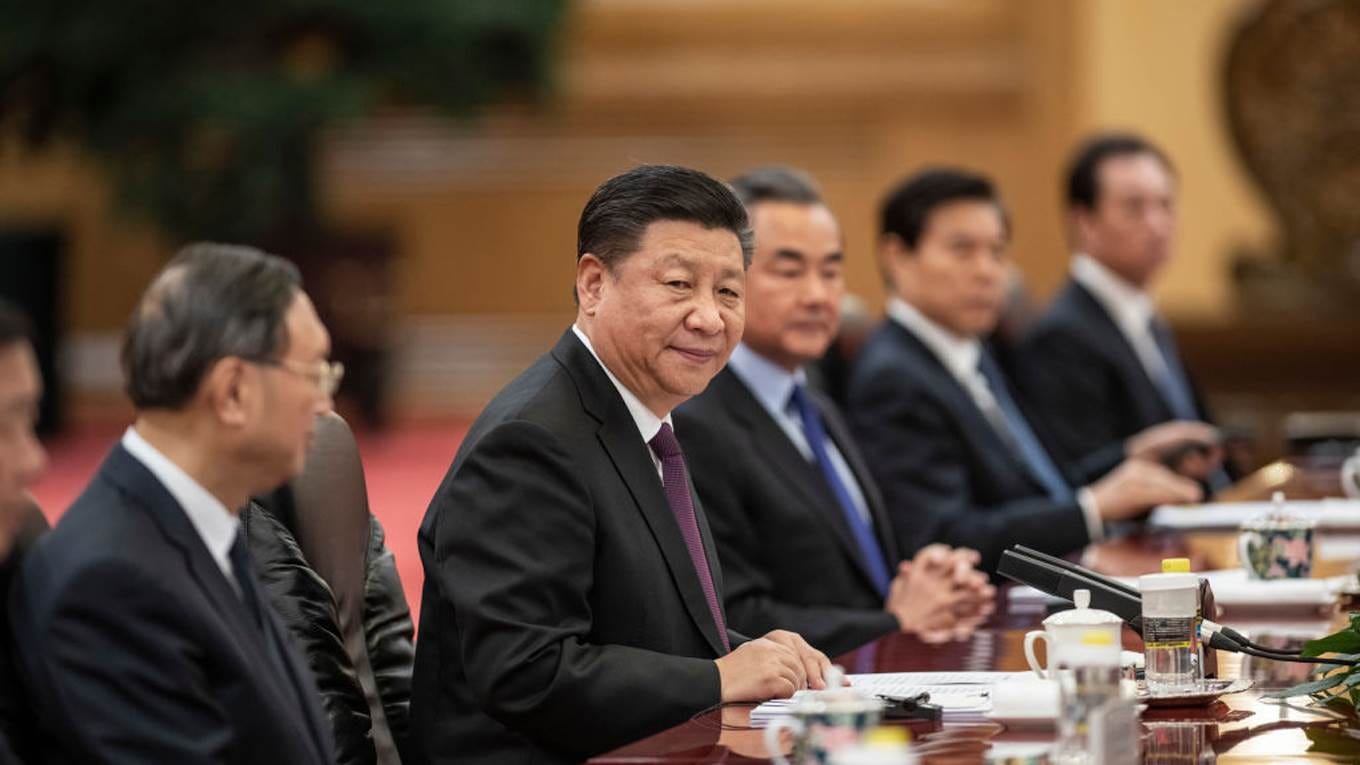 Source: http://strategicstudyindia.blogspot.com/2019/02/what-is-xi-jinping-thought.html
Source: http://strategicstudyindia.blogspot.com/2019/02/what-is-xi-jinping-thought.html
In 2017, China officially endorsed the “Xi Jinping Doctrine” (also known as the “Xi Jinping Thought”, depending on both translation and reporting source; this is similar to and intersects with, but not to be confused with the “Confidence Doctrine”.), a political theory which does two things; first off, elevate Xi Jinping to a status similar to Mao, and secondly, bring Xi’s political ideology not just into the mainstream of Chinese politics, but create an environment in which his policy/philosophy would be actively spread and promoted. Note that this does not just mean domestically; China has a long history of active foreign promotion of Chinese ideals and propaganda. What’s more is that Xi Jinping himself has laid out a plan to make China a “lead, global influence” over the next few decades by encroaching on both the economic and cultural dependencies of the rest of the world.
In fact, back in 2008, it was thought that China maintained a literal army of 300,000 internet posters (for reference, the entire British Army has approximately 82,000 men), whose sole job was to improve China’s standing online and spread narratives friendly to that of the beliefs of the Chinese government. Fast forward a few good years, and security researchers and academics believe that number to have grown to at least 2,000,000. That’s 2 million paid agents whose job is to do nothing but monitor online activity, and astroturf social media to promote the ideals of a “harmonious society” according to the beliefs of the Chinese government. That’s approximately ten times the size of the entire United States Marine Corps. Inside China, they’ve become so pervasive, they’ve gained the mocking nickname the “50 Cent Army” — a reference to how much the government supposedly pays. I thought that this is of particular interest to note, as not everybody reading may be familiar with the exact ins and outs of the Chinese government’s attempt to control information and sway foreign opinion. The sheer scale and size of their operations, will perhaps elucidate just the sheer lengths to which they’ll entertain to achieve these objectives.
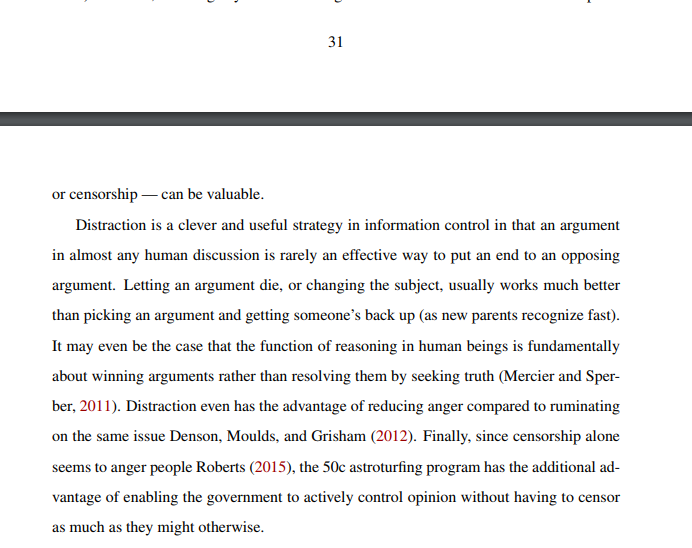 Source: http://gking.harvard.edu/files/gking/files/50c.pdf
Source: http://gking.harvard.edu/files/gking/files/50c.pdf
What’s more interesting here? Look at the tactics used. Keep this in mind as well as you read over the rest of the article; especially in regards to what is being censored, and how.
Furthermore, because of China’s pseudo-Communist style of government, all mega-corporations are essentially tools of the government; in order for a company of such immense size to remain in business, they need to not just be approved by associated government departments, but also pledge to both uphold and spread the same ideals of the government (which to reiterate would in this case, be the “Xi Jinping Thought”) to retain favor. And as you’ll see later, Beijing has taken a distinct emphasis to this principle in recent times. These ideals, which have been shown to the world throughout last year of course, meaning things such “homoerotic fiction” writers being imprisoned (with heavier sentences than rapists), cartoon artists being arrested, actors being forced into public shaming sessions, celebrities being “disappeared” (see below), and on and off blanket bans on entire mediums of media among other things.
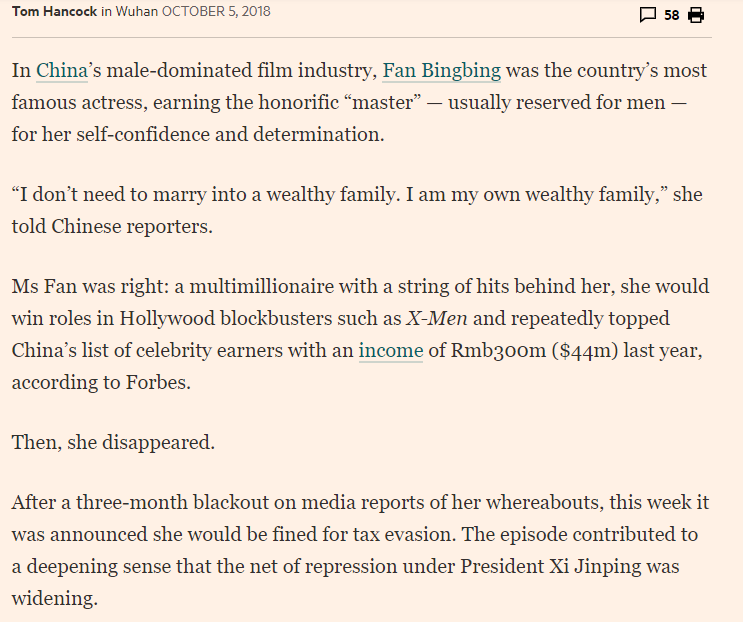 Source: Financial Times.
Source: Financial Times.
The irony in all of this? Most of this is barely being covered by western media, while as you’ll see below, Chinese investment firms are slowly eating up the major players of Big Tech themselves. At the same time, we here in the US complain about the violations done to us by our own natively housed companies, who seem to have developed a sudden censorship-happy streak as well.
This is where we get into the true meat of things. Essentially, there’s been an oddly increasing number of incidents related to so-called “problematic content” being stripped from or outright barred from a number of sites. However, when looking into it deeper, there seems to be a simple, central trait shared by all of these incidents; Chinese Investment, or entrance into the Chinese Market. All of this also corresponds to reports that cross-border investment from China is reaching new levels, as there is proof of China actively attempting to move their money overseas. What’s terrifying about this revelation is, as you’ll see, the issue with censorship does not come simply from Chinese companies buying out firms so they can censor them; it comes, sometimes, from companies simply wanting to expand into the Chinese market themselves, and be compliant in doing so.
Let’s take a look into some of these examples, and how they tie into the greater scheme of things here.
Steam
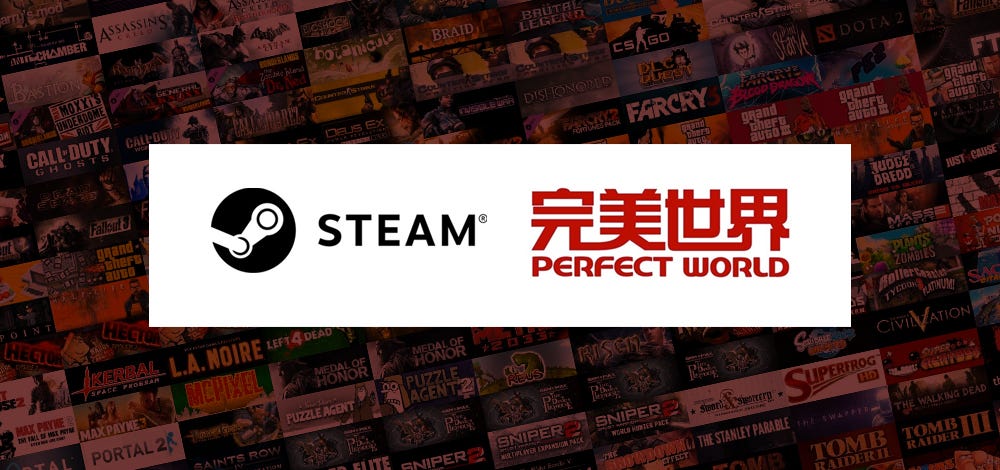
As mentioned, Steam initially went headfirst into opening the floodgates, allowing content of all sorts onto the storefront. This happened around May-June or so of 2018, after a series of flippant decisions, going back and forth on their stance on adult content, before making what seemed to be a solid stance at the time; that they would allow allow “everything” on their store. However, their flip-flopping during that time seemed not just inconsistent and confusing outwardly— but also, on a primal level, deeply indecisive. The reasons for this confusion were never fully disclosed either, adding only further suspicion to the narrative, and leaving both developers and consumers to speculate.
What else was happening around the time of that indecisive back and forth and inconsistent content policy (which I will add, prior to the sudden controversy at the time, was not an issue at all, as long as games launched with an offsite patch, regardless of content)? That’s right; Valve was already negotiating to enter (officially) Steam into the Chinese market. Notice the timing between these two; these articles are only a month apart for example.
So okay, this could just be a coincidence, right? Well, that’s where things get more interesting. In November of 2018, Valve and Perfect World signed an agreement (with the Shanghai Government) to bring Steam to China officially. What else happened in Q4 of 2018, at the exact same time of signing? Valve reversed their stance on opening the “floodgates”. This started with the banning of what?
Very similar to Tencent’s Reddit and Discord censorship, it started initially with so-called “young looking anime characters”. However, since the tail end of December into January, Steam’s censorship has only gotten worse; an anonymous developer we’ve talked to has run into issues with Valve not even approving their store page prior to receiving game builds for “content checks”, something which has never been an issue on the store prior for example. Meanwhile, the censorship ramped up on other types of games; more specifically, certain types of games with Asian-native, Japanese anime-mimicking art-styles.
What’s weirder about this? If you look closely at where the non-sexual games with anime art-styles line up, a lot of the censored or purged ones come from Hong Kong, Taiwanese or Japanese-based developers. The games below have been banned for example, and do they look like “children”, despite that being the cited reason?
 Source: https://www.oneangrygamer.net/2018/12/valve-bans-erotic-visual-novel-my-bullied-bride-from-steam/73552/
Source: https://www.oneangrygamer.net/2018/12/valve-bans-erotic-visual-novel-my-bullied-bride-from-steam/73552/ Source: https://www.oneangrygamer.net/2019/01/food-girls-all-ages-steam-release-indefinitely-delayed-due-to-valve/74838/ — Not banned but “Delayed Indefinitely” IMPORTANT NOTE: WHILE NOT A SEXUALLY EXPLICIT GAME, THE GAME’S DEVELOPER IS ACTUALLY BASED OUT OF TAIWAN
Source: https://www.oneangrygamer.net/2019/01/food-girls-all-ages-steam-release-indefinitely-delayed-due-to-valve/74838/ — Not banned but “Delayed Indefinitely” IMPORTANT NOTE: WHILE NOT A SEXUALLY EXPLICIT GAME, THE GAME’S DEVELOPER IS ACTUALLY BASED OUT OF TAIWAN https://www.oneangrygamer.net/2019/01/victory-project-political-thriller-visual-novel-banned-from-steam/75718/ — Banned, does not contain adult or R18 Content; IMPORTANT NOTE: WHILE NOT A SEXUAL GAME, THE GAME’S DEVELOPER IS ACTUALLY BASED OUT OF HONG KONG
https://www.oneangrygamer.net/2019/01/victory-project-political-thriller-visual-novel-banned-from-steam/75718/ — Banned, does not contain adult or R18 Content; IMPORTANT NOTE: WHILE NOT A SEXUAL GAME, THE GAME’S DEVELOPER IS ACTUALLY BASED OUT OF HONG KONG
Steam is an interesting addition to this list, because Valve themselves are a privately owned company, so they haven’t been in the same situation of being encroached upon by Chinese investment. However, what’s interesting about this is echoed in the introduction; the Chinese government didn’t actually need direct investment in order to levy censorship on the platform, they only needed the firm in question to move into the Chinese Market to bring it into the arms of Chinese standards and regulators — as informed by “Xi Jinping Thought”. Beyond even simple timeline and policy theorizing, the South China Morning Post’s recent article (below) reported on China’s ability to pressure Steam into compliance. Note the implication here that the Chinese government is constantly monitoring Valve’s behavior, the content being allowed on the store, and is in regular communication with Valve regarding these matters.
 Source: https://www.scmp.com/tech/article/2169638/unlikely-winner-chinas-gaming-crackdown-us-platform-steam-least-now
Source: https://www.scmp.com/tech/article/2169638/unlikely-winner-chinas-gaming-crackdown-us-platform-steam-least-now
Interestingly enough, this comes at a time when China themselves is doing their best to compete with, and thus enter, the sphere of Western gaming. Tencent for example, has a large stake in Epic Games (40%). Tencent has also been attempting to bring WeGame to the west since mid-2018 in addition. It should be interesting to note that the Epic Games store also bans adult content; apparently its sole content restriction. With such a rivalry brewing between Steam and Tencent, it’s no wonder Steam is attempting to move into the Chinese market in an attempt to rival them; even though this move may have put them in an even rougher position.
Tumblr & Apple
In December of 2018, the internet was set aflame by widespread announcements that Tumblr would be banning “all adult content”. Tumblr is owned by Yahoo and Verizon Media. Importantly, Verizon Media Group used to be called “Oath” before a name change. Note that both had working partnerships with Alibaba, as both owned stakes in the company — which is, of course, Chinese.
The actual history of their stock relation is pretty complex, but throughout 2018, the relationship between Altaba (Yahoo’s consolidated investment firm group), essentially became a “proxy for Alibaba” because of the investment relationship between the two. Furthermore, Oath hired a former Alibaba Executive as President and COO earlier in 2018.
Tumblr’s censorship focused on far more than just “adult content” as well; the filter, a machine algorithm, went crazy with images banning everything from “Batman to Garfield to Big Bird to a Bowl of Fruit” for being supposedly NSFW. Not only was the algorithm hastily implemented, but its effect on the site essentially splintered its user-base. News sites lambasted it as a “commercial mistake”, and users themselves devolved into openly mocking the site’s decision on other platforms.
I will say, however, that what does not lend credence between this and the rest listed here is that Tumblr uniquely was embroiled in a separate scandal at the time just a month before. One would have to interject though; this doesn’t seem to make any sense. Why hasn’t this happened to every other social media site? Facebook just removed 8.7 million sexual photos of minors in a 3 month span of 2018. Twitter took down half a million accounts for “child sexual exploitation” in half a year. So what exactly makes Tumblr unique enough to be de-listed from the app store and make these changes? Twitter explicitly allows adult and graphic content, which go against the app store’s clearly stated rules.
 Twitter Content Policy: https://help.twitter.com/en/rules-and-policies/media-policy
Twitter Content Policy: https://help.twitter.com/en/rules-and-policies/media-policy Does Twitter not include literally all of this? — https://developer.apple.com/app-store/review/guidelines/#objectionable-content
Does Twitter not include literally all of this? — https://developer.apple.com/app-store/review/guidelines/#objectionable-content
So here’s where things get interesting; Tumblr’s stake in the social media game was unique compared to other firms. Neither Facebook nor Twitter actually have anywhere near majority Chinese investment. Tumblr however? Due to their entanglement with Yahoo and Oath/VMG listed above (Note: Yahoo was acquired by Verizon in 2017, and thus Tumblr moved from Yahoo to Verizon as well), Tumblr can be seen as a remote proxy of Alibaba; their parent company is a major shareholder in the latter, but that influence works two ways, especially since Alibaba’s shares were worth more than Yahoo itself prior to its sale, causing a consolidation into its own company. Note that additionally, Tumblr has a illegal presence in China thanks to firewall circumvention; in fact, the Chinese users of Tumblr even commented on the porn ban themselves.
So the only social media app that got singled out is the only one with an essentially direct Chinese relationship? This comes during the exact same quarter of the year that Apple’s relationship with China deteriorated too; not only did they blame revenue loss for 2018 on Chinese censorship specifically, but also predicted Apple may altogether be pushed out of China due to “heavy handed censorship”. Given the clear handle China seems to have on Apple, and the seeming coincidence of the app being pulled having a connection to China, is there something more insidious happening behind the scenes? It’s food for thought.
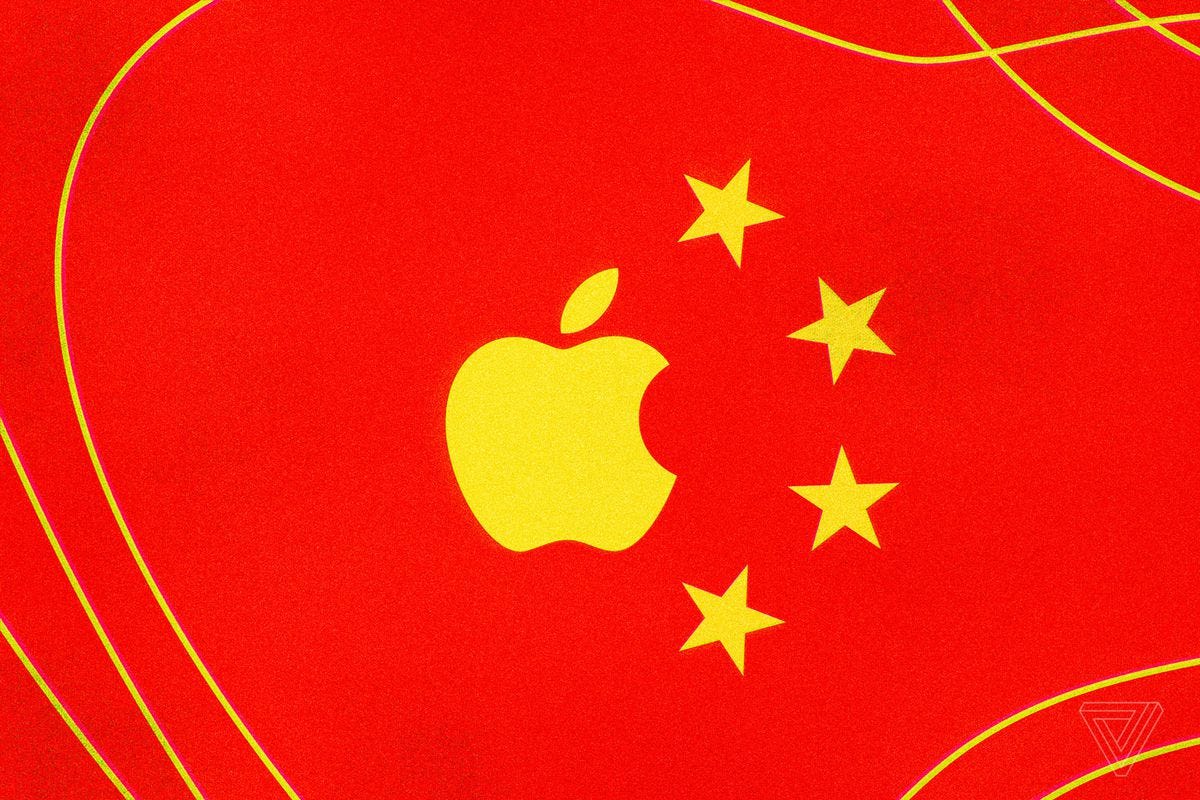 Source: https://www.theverge.com/2019/1/29/18202812/chinese-censorship-hurt-apples-bottom-line
Source: https://www.theverge.com/2019/1/29/18202812/chinese-censorship-hurt-apples-bottom-lineSony / PlayStation
PlayStation fell under similar fire to Steam in their pivot to censorship in Q4 of 2018. This began to be reported on as early as Late August into September of the year. What’s interesting, however, us that just a month prior, Sony held a conference in China. I will note that at the Chinese Conference, Sony specifically discussed Chinese Censorship, among other things. When Sony responded to censorship concerns shortly after in the year, they responded with “About the censorship, we tried to meet global standards” (Quote specifically from Sony Japan/Asia President Morita).
What’s more about this censorship? It seems to disproportionately be affecting anime games; not too far off from the censorship standards of Discord or Steam. Note that in this case however, this is not the censorship of anything actually explicit; it’s the censorship of things that could be seen as suggestive, such as bathing suits, or “fanservice”-oriented situations. The more scary thing here? It seems to overlap near perfectly with the same content under fire on other platforms being discussed in the same vein.
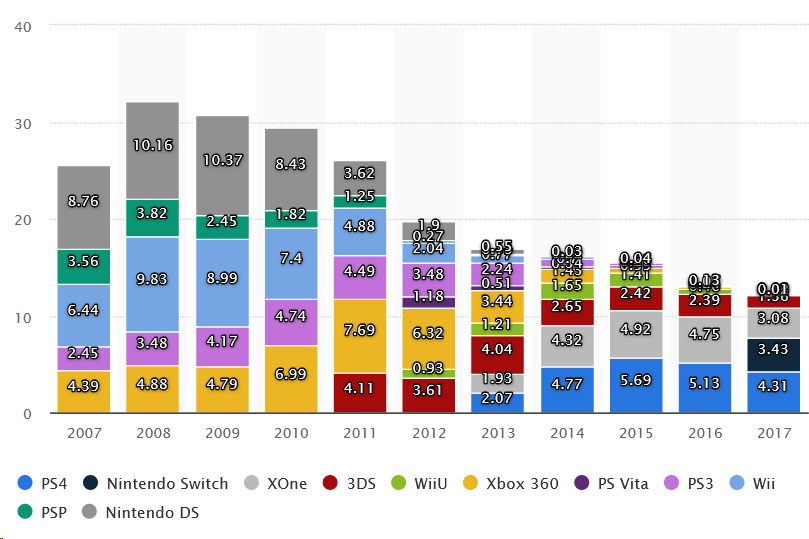 Source: https://www.statista.com/statistics/685117/us-game-consoles-unit-sales/
Source: https://www.statista.com/statistics/685117/us-game-consoles-unit-sales/
Note that in the past, Sony has struggled with sales in China due to censorship, and has actively been trying to rectify this as they bring themselves to the so-called “global market”. The real question here is then, what exactly does a “global market” imply? Well, given the fact that in the United States the opening 5 years of the PS4 have rivaled the opening 5 years of the PS3 (estimated 3.866 million for PS3 vs 4.394 million for PS4), the real implication is not that they’re “cleansing themselves” for further expansion into the US market; it’s that they’re cleaning their content for further expansion into the Chinese market.
Regarding censorship for Sony’s regulations on games.To sum up the content of this video, a content policy began to circulate last fall which required tougher inspection for games, as well as edited content and censorship. Disproportionately affected games were those from, targeted to, or inspired by the Asian market. The implementation of this policy has been especially hard on developers, who in some cases have to either change plans completely when entering the platform, or even cancel plans for bringing games to the system altogether. This isn’t too much of a far cry from the censorship happening on similar systems; for example what we discussed above with Steam, and the relatively similar timeline doesn’t do many favors in easing worries.
But while the censorship of supposedly “niche” media and imagery may not be an immediately threatening jab at mainstream audiences, we now get into a far more insidious side of censorship; that being, of course, what’s going on with Google.
Google & Youtube
 Source: https://www.techspot.com/news/75762-google-working-china-censored-search-engine-known-project.html
Source: https://www.techspot.com/news/75762-google-working-china-censored-search-engine-known-project.html
Everything echoed throughout this article leads us into a much larger dilemma; the influence of big tech firms is so widespread, that Chinese censorship may only contrast slightly with the modus operandi of these companies otherwise. Western media is centrally controlled by very few overarching firms. Let’s say Google made the decisions noted below in this section independently, and it was not an infiltration of Chinese-oriented censorship to break into their market. The fact that the outcome of censorship points to the exact same ideological traits is horrifying either way.
- On one hand essentially, tech firms are bending over to please the ideals of the Xi Jinping Doctrine, in hopes of courting favor with the party — leading to their eventual approval to begin operations within China.
- On the other hand, tech firms are pleasing the ideals of the Xi Jinping Doctrine — without being told to, simply because they already ideologically align.
But the question remains regardless; so, is Beijing exerting a clandestine power over our tech corporations by using the influence of Chinese mega-conglomerates (who we’ll remind you, again, are bound to upload the moral standards of the Chinese state under Xi Jinping Thought)? There’s room for debate, but as you’ll see, the way the timeline aligns is more than just a bit elucidating — and scary.
First off, as discussed above, Epic Games is another Tencent-acquired corporation . Tencent also has acquisitions in Supercell (Clash of Clans Developer) and PUBG. Video games, thus, have become a large portion of advertisement revenue; notice the increase in ads for these games specifically over the past few years? What other companies have recently run tons of ads on Youtube though? Musical.ly/TikTok (owned by Bytedance), whose origins are also of a Chinese company, for one. Tiktok has also seen a burgeoning increase in popularity in the West; so much so, that Snap is starting to see them as a threat to business…even though Snap themselves have investments from Tencent as well.
Now, Tiktok bought out Musically during the fall of 2017, coordinating with both the “adpocalypse” (a slang term for mass demonetization spreading across Youtube) earlier in the year and the official declaration of the Xi Jinping Thought in China as well (which you’ll see is relevant shortly). Following that, TikTok flooded Youtube’s advertisement system with ads; which by then, obviously found their home on content already stripped down to appease to Chinese advertisers. This is where the timeline gets important, so let’s backup to the spring of the same year — when this all began.
As mentioned above, I’d like to point out that the “adpocalypse” started the same year following the rise of the Xi Jinping Doctrine in China; and thus, the introduction of more Chinese ads (as described above) onto Youtube further corresponds not just to the overall toning down of say “mature” content in tandem, but also the demonetization of LGBT videos. What does all of this point to? First, advertising revenue actually went up between 2017 and 2018, despite western advertisers pulling out and the mass demonetization of videos and changes in acceptable advertising content policies.
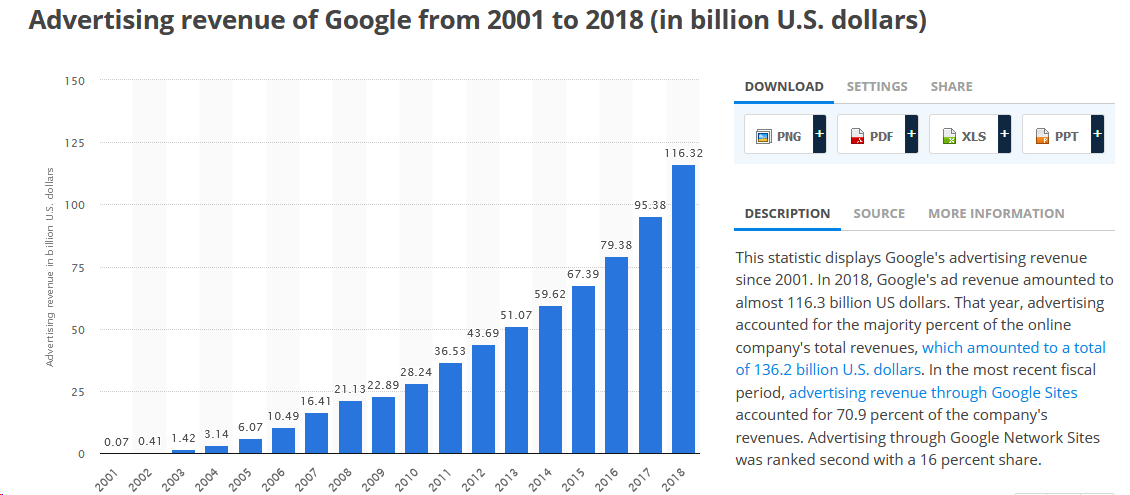 Source: https://www.statista.com/statistics/266249/advertising-revenue-of-google/
Source: https://www.statista.com/statistics/266249/advertising-revenue-of-google/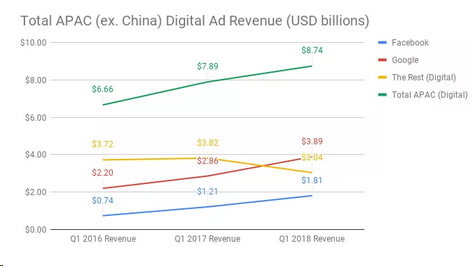 Source: https://digitalinasia.com/2018/06/25/the-duopoly-in-apac-google-facebook-grow-ad-revenue-40-in-2018/ Note how Ad Revenue fell drastically from “the rest” but grew from Google and Facebook.
Source: https://digitalinasia.com/2018/06/25/the-duopoly-in-apac-google-facebook-grow-ad-revenue-40-in-2018/ Note how Ad Revenue fell drastically from “the rest” but grew from Google and Facebook.
Ad revenue has been growing in the Asian regions (namely China) since 2014 actually, but the growth in ad revenue between 2016 to 2018 grew exponentially more; between 2016 and 2017, the growth was only 0.66 billion, while the following year it was 1.03 billion. This aligns with the overall growth in advertiser revenue, despite advertisers supposedly having pulled out of YouTube. So as western advertisers said goodbye, they were very quickly replaced with an even more profitable source of revenue; Chinese advertisers. And what came with Chinese firms moving in to occupy this space? Content censorship.
Some might say: but Google wouldn’t censor content on the whim of foreign governments, they’ve made it clear that they have their own strong political views. I (and others) would usually agree with this, however, this all also further aligns with the introduction of Google’s Project Dragonfly, a search engine tailored to the censorship demands of the Chinese Government — including the censorship of human rights, democracy, and other so-called “sensitive issues”.
Does the timeline match up to the adpocalypse though? Well, in spring of 2017, Project Dragonfly began development and gained traction.
 Source: https://studybreaks.com/tvfilm/what-is-googles-project-dragonfly-and-why-is-it-so-concerning/
Source: https://studybreaks.com/tvfilm/what-is-googles-project-dragonfly-and-why-is-it-so-concerning/
When did the first cracks of the adpocalypse begin? The same time, in the spring of 2017.
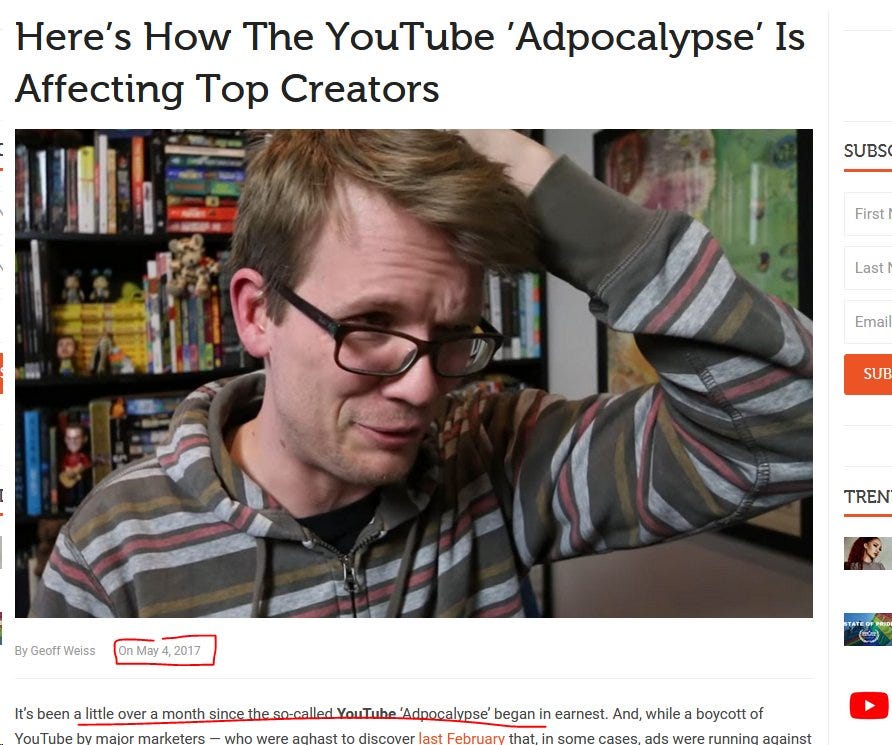 Source: https://www.tubefilter.com/2017/05/04/how-youtube-adpocalypse-affected-top-creators/
Source: https://www.tubefilter.com/2017/05/04/how-youtube-adpocalypse-affected-top-creators/
It doesn’t help that the CEO of Google himself has emphasized publicly that Google has run experiments in order to find statistics for how well they can serve filtered Chinese search queries.
 Source: https://www.cnbc.com/2018/11/27/read-google-employees-open-letter-protesting-project-dragonfly.html
Source: https://www.cnbc.com/2018/11/27/read-google-employees-open-letter-protesting-project-dragonfly.html
What else does Dragonfly and the avalanche of Youtube censorship align with? A Google Play crackdown on “anything even slightly sexy” — which, to add fuel to the flame, seems to possibly be the work of an algorithm as well. Note that this is not without precedent either; Google has been actively known to be missing out on billions in china, and has actively been trying to regain their market position by doing what? That’s right; bringing the Google Play store back to China “to no avail”, and comply with regulations there.
 Source: https://www.cnbc.com/2018/01/17/google-misses-out-on-billions-in-china.html
Source: https://www.cnbc.com/2018/01/17/google-misses-out-on-billions-in-china.html Source: https://www.cnbc.com/2018/01/17/google-misses-out-on-billions-in-china.html
Source: https://www.cnbc.com/2018/01/17/google-misses-out-on-billions-in-china.html
While 2017 could have been a boilerplate year for expansion into China thanks to both Project Dragonfly and the refocusing of their content policies, 2018 became a year of them expanding more concretely into China. They started off the year by first establishing an actual office there. They partnered with Tencent in Q3 of 2018 as well, for “data and cloud services”. What does all of this mirror?
Well, Google isn’t the only company in Big Tech to have developed camaraderie with China. Facebook looked to China for growth as recently as last year. The point being, it didn’t matter that Facebook, like Youtube or Google, were banned in China. What matters was that Chinese businesses were willing to pay them—and influence them.
The Curious Case of Payment Processors, Part 1
Payment processors, such as Paypal and Stripe, are an especially curious case. There’s been a longstanding argument that the reason many payment processors don’t accept “adult content” is because of the high risk associated and because of cultural reasons. This is definitely the case for many of them, especially due to a US Government initiative called “Operation Choke Point” in the past; processing adult content was labeled a “high risk activity” (see citation in section about this below). Whether or not Operation Choke Point is officially over with is a separate matter entirely, but here it’s important to consider that the United States isn’t the only capable entity for exerting such pressures. Following that line of thought, there’s a certain correlation between the acceptance of Chinese payment methods and the allowance of adult content on platforms.
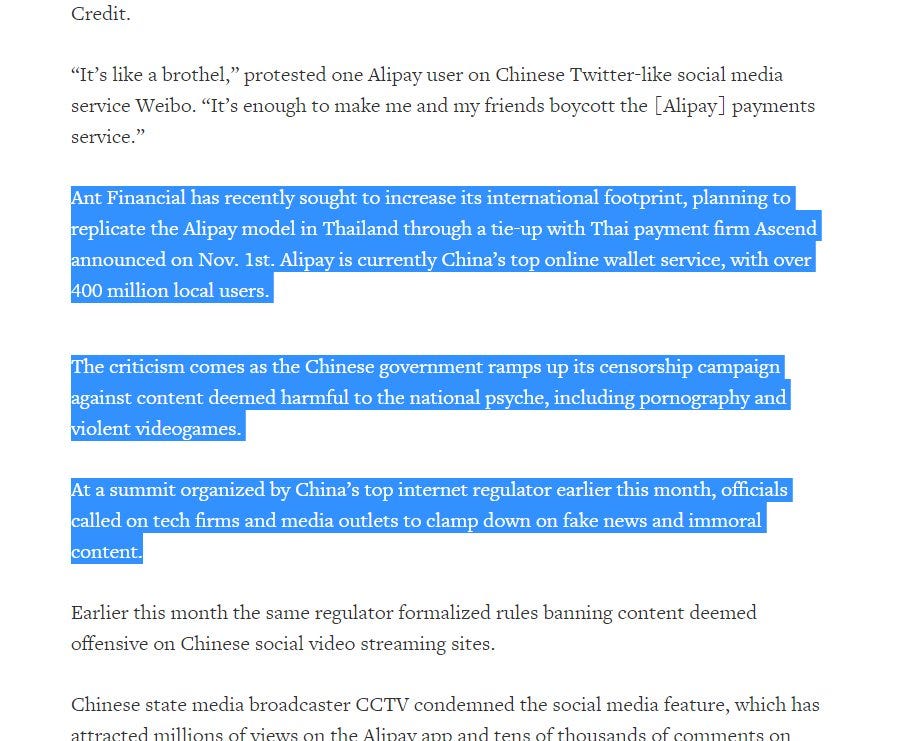 Source: https://www.reuters.com/article/us-china-alibaba-idUSKBN13O1HN
Source: https://www.reuters.com/article/us-china-alibaba-idUSKBN13O1HN
In 2016, Alibaba’s Alipay (a Chinese payment platform similar to Paypal or Apple Pay) was hit with backlash — both from the government and from its wider audience — for essentially allowing sexual content to be paid for through its service. Coming back from the scandal, they cracked down heavily on this material. Going forward from 2016, the Chinese government ramped up its censorship campaign against “immoral content”, “pornography and violent video games”. It should be noted that Alipay’s modern terms of service bans all “pornographic materials”, without actual definition of what this qualifies.
Here’s the greater issue; the banning of “pornography” isn’t necessarily groundbreaking on its own per-se, but the idea of a government being able to influence and pressure the central economic units of a society so closely is more a scary thought. So that said, here’s the thing, the US government has attempted to do this themselves in the past, more recently with something called Operation Choke Point. What started as an attempt to stop fraud by cracking down on “high risk businesses” became a morality panic, causing confusion and distress among payment gateways and economic pressure points like banks; it’s summed up in a more succinct form in this thread here. While on its face Operation Choke Point was an Obama-era initiative meant to clamp down on predatory “payday lending” schemes, the ripple effects felt make it appear the effort branched out into the policing of political/adult content altogether. The US Government was able to pressure the central units of the economy in a way that it changed the economic and cultural landscape surrounding banks and payment transaction gateways.
Can you imagine what China’s government could do in the same position? This is where things get especially scary.
AliBaba’s influence across the world in ways you wouldn’t even imagine. Beyond their stake in payment processing with AliPay, Alibaba’s holding company owns and has partnerships with tons of overseas organizations. Alibaba owns South China Morning Post for example, a news organization; among other companies they have partnerships with Politico. This is just one example of how deeply intertwined, yet latent, their influence can be. Media investments in itself matter when you consider the fact that the Chinese Government has a “massive stake” in Alibaba, even beyond the actual approval and regulation of the company. State papers even show that Jack Ma (the CEO) is a member of the Communist Party; despite public assumptions that he was distanced from politics. A key quote from that piece I just linked:
 Source: Above
Source: Above
This bears repeating. This article says “it comes amid a push by Beijing to bring the country’s private enterprises more in line with Party values”. What does this mean when it comes to Chinese companies and their investments around the world? As you can see from the article, the dilemma faced in this article is in fact a reality. We need to ask ourselves what the implications of this are for us, the general public.
Looking further into AliPay, the following document seems to have been indexed by Google accidentally. We found it when searching for Alipay’s terms. It seems to describe a business and merchant relationship between them and an SEO optimizer website based in Switzerland that includes Alipay integration in their array of services (Archived proof of search results here in case of removal). While usually a premise like this can appear sketchy at a glance, the person named in the contract appears to be real, with their LinkedIn showing the same connection to the business as the signee in the contract. Keep this in mind when thinking about the influence being exerted here on a foreign corporation; one that is in Europe, not in China or an adjacent economy.


Above is an excerpt from this Alipay Service Contract. WeChat, too, does not allow sexual content, and has fallen under fire similarly for housing it on their platform, even being told to clean up “offending accounts”.
Let’s compare the terms between something like Operation Choke Point and a binding document like AliPay’s above (pg 17 and 19 are especially of interest).
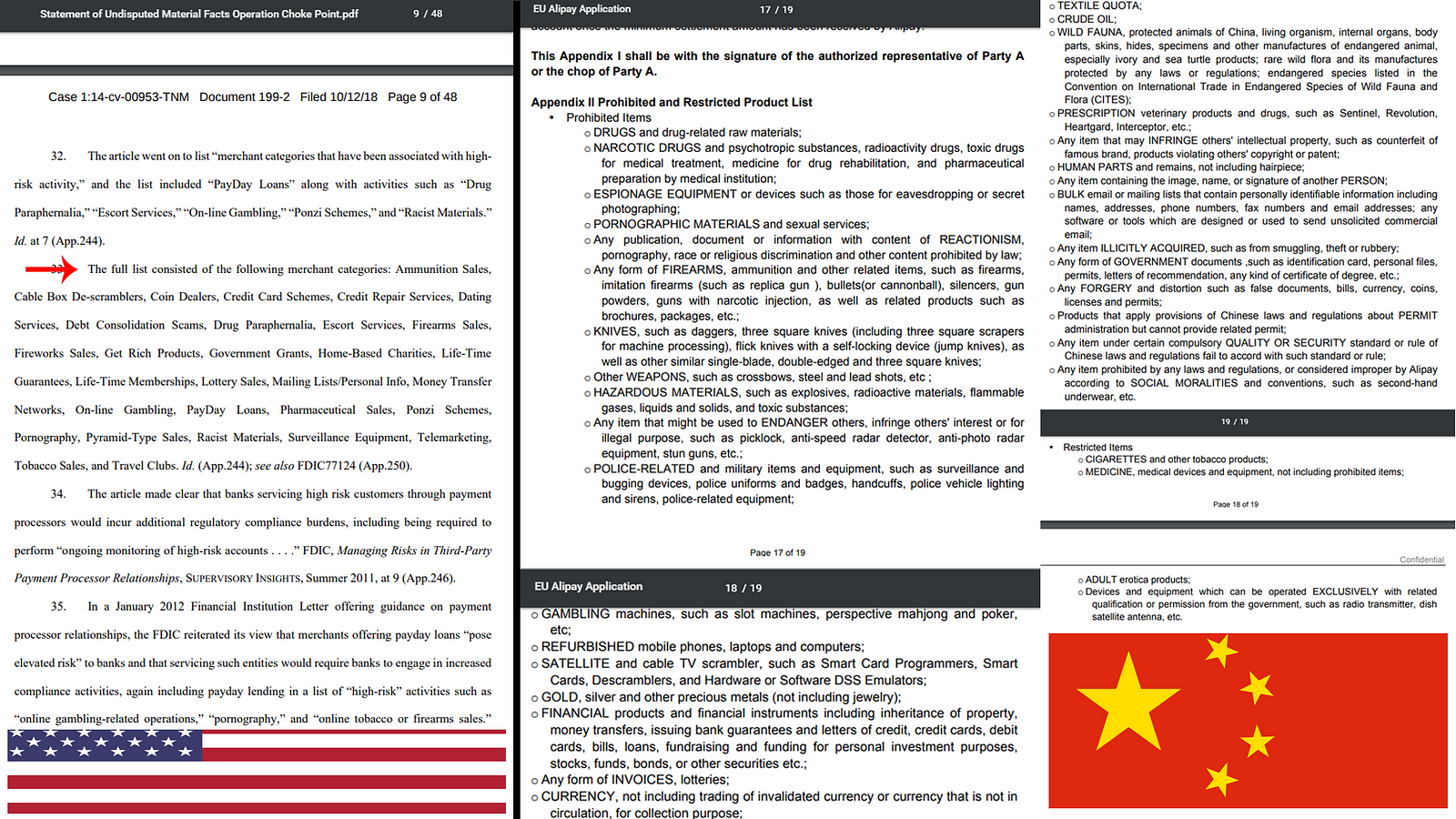 Contrasting Operation Choke Point with AliPay’s terms.
Contrasting Operation Choke Point with AliPay’s terms.
If Operation Choke Point acted in a way that enforced the morality of the US Government onto financial groups, then AliPay’s contract acts to enforce the morality of the Chinese Government onto financial groups. What America describes as “Racist Materials,” and what China describes as “REACTIONISM,” both have in common the quality of casting a wide subjective political net over possibly any viewpoints these companies disagree with.
Make of it what you will, but this is the closest understanding we have as of yet to the black box “global payment network” that banks function within.
Interlude: So Wait, What Was that Reactionism Clause?



So when I was writing this, we came upon the Reactionism clause in the leaked merchant contract between Alipay. Now, this article was not supposed to be focused on politics, but upon finding that piece of evidence when writing this, we inevitably need to talk about this. While it’s true that the interpretation of this would depend on the definition of “Reactionism” being used, I think there’s one thing which is clear; given the fact that we’ve established AliPay and UnionPay inherently subscribe to the ideology of the Chinese government, “Reactionism” is being used in a way to align with the above definition as it pertains to well, not just the Chinese Government, but essentially to the Communism of the Xi Jinping Doctrine.
There’s been a number of trends pertaining to right-wing people being banned (or de-platformed) from a number of social media and payment processing platforms. Now, in the case of Patreon (which as we’ve said, links to Stripe, which links to Alipay),there’s a clear case of being directly related to this “reactionism” clause. To play devil’s advocate, I will indeed admit, we do not have the actual agreement between Stripe & Alipay; however, we do have a merchant agreement, and merchant agreements, in this industry, do not tend to change between clients, no less ones written by foreign companies that would then have to be translated into English. So what’s the implication of all of this? A terrifying one really.
I mean, it’s not just Patreon that’s gotten shutdown by Stripe; what other websites? There’s the “right-leaning” Patreon-alternative SubscribeStar . There’s Gab. Oh yeah, how about the fact that GoDaddy accepts Alipay; and also shutdown Gab. Even if we were to say that theoretically that GoDaddy let Gab go for ideological reasons that starts an even bigger crisis, the same we’ve described for Google; what would the difference actually be in practice?
We talked about the Xi Jinping doctrine; the spread of ideologically driven penetration into foreign markets to spread the values of the Chinese government. Given that AliPay is essentially derivative of the Chinese government as a business, it’s not surprising that they’re including this in their contract; however, with these contracts theoretically being distributed to foreign corporations, does this mean does that those partner corporations are actually being subjected to controls originating from the Chinese government? Is this why certain forms of speech — which are commonly antithetical to the ideals of Xi Jingping thought and Communism — have suddenly become at risk on these platforms?
The Curious Case of Payment Processors, Part 2
So remember those articles about Patreon purging right-leaning figures? The same Patreon we’ve pointed relies on Stripe, which is partnered with Alipay? So now that we’ve begun to see this with Stripe; but what about say, Paypal? They may not accept Alipay, but they are indeed registered and available in China themselves.
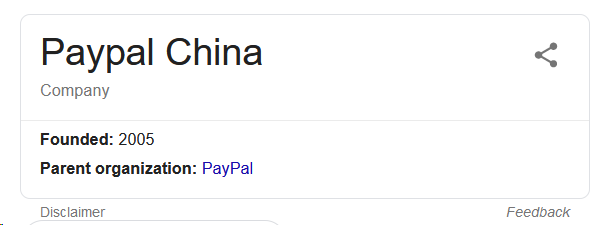
But wait, Paypal and Braintree are sister companies. Braintree accepts UnionPay Banking options in certain countries. Under what terms do they accept UnionPay in these countries though?(Note: CUP Cards are “Chinese UnionPay Cards”)
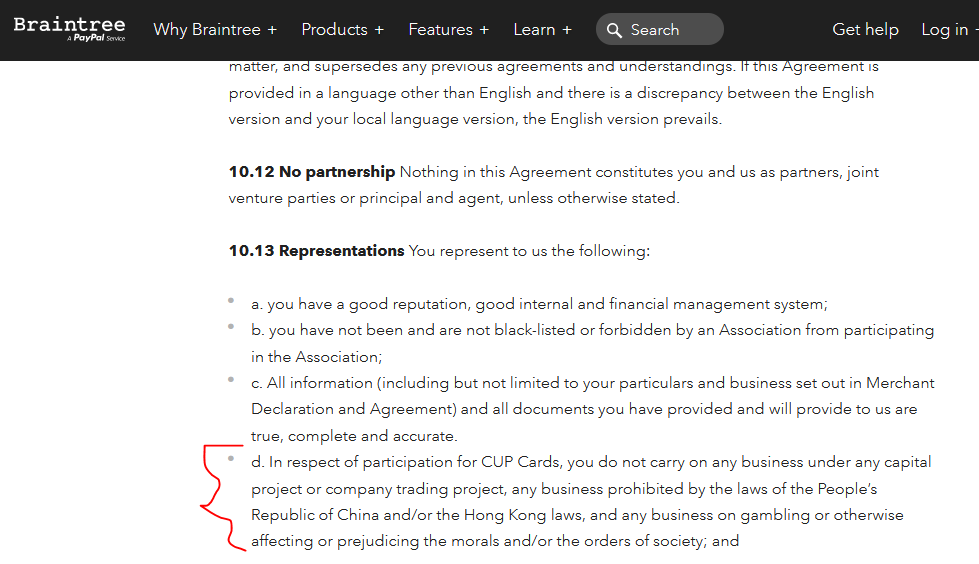 Source: https://www.braintreepayments.com/sg/legal/bank-agreement — Note: This is not the bank agreement for the US, since the US does not have native CUP cards. Regardless, it shows Braintree’s acceptance of the Chinese government’s terms.
Source: https://www.braintreepayments.com/sg/legal/bank-agreement — Note: This is not the bank agreement for the US, since the US does not have native CUP cards. Regardless, it shows Braintree’s acceptance of the Chinese government’s terms.
This is the actual agreement between merchants in order to use UnionPay and it runs parallel to the restrictions of AliPay. Overall solidifying the concern at hand that these companies will bend to the Chinese government’s morality in order accept their approved payment sources. Furthermore, we can extrapolate this to apply UnionPay’s terms onto other sites.
With that said, a now archived post listing payment processors lists a number of processors and their stances on adult content. When analyzing this list of instances, I focused on two specific elements; availability in China, or alternatively, partnerships with Chinese payment gateways/merchants, such as UnionPay or AliPay. What we found is essentially all payment processors involved have Chinese companies somewhere in their chain; even Amazon Payments for example, accepts UnionPay on the shoppers’ ends.

Others with availability in China or with UnionPay or AliPay acceptance fall into the same trap.
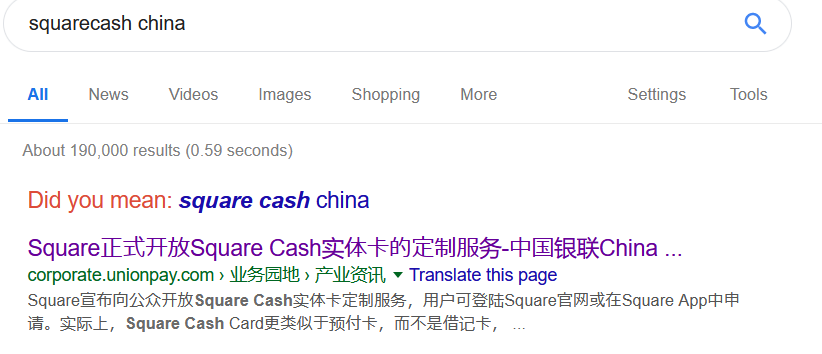
To balance this out, let’s take a look at so-called “high risk payment processors” and what payment types they accept. Notice the absence of UnionPay, AliPay, or similar in HostMerchantServices and PayKings for example?
 https://www.hostmerchantservices.com/payment-gateways/
https://www.hostmerchantservices.com/payment-gateways/ https://www.paykings.com/international/
https://www.paykings.com/international/
What’s more interesting, however, is the in-between of these two. There’s certain companies that don’t accept Chinese payment sources, and others that do, but how about those that changed their minds or adopted them over time?
Let’s take this timeline for example; In, July of 2017, Stripe announces a partnership with Chinese Companies WeChat (Tencent) and AliPay. What happened less than a quarter of a year later? Well, Patreon (who as stated earlier relies on Stripe for processing), had their guidelines updated with further scrutiny paid to adult content, seemingly out of nowhere. As time went on, Patreon would be on and off with the adult content they allowed, eventually allowing it as long as the outward page being presented was not itself explicit. The NSFW community on the site was left in a cloud of doubt about what the official position was when it came to terms of service; much akin to what is currently happening on platforms like Steam. Are there any other examples of this, however? The archived list we used notes that Circle, which was at one point accepting of this content, apparently changed their mind it.
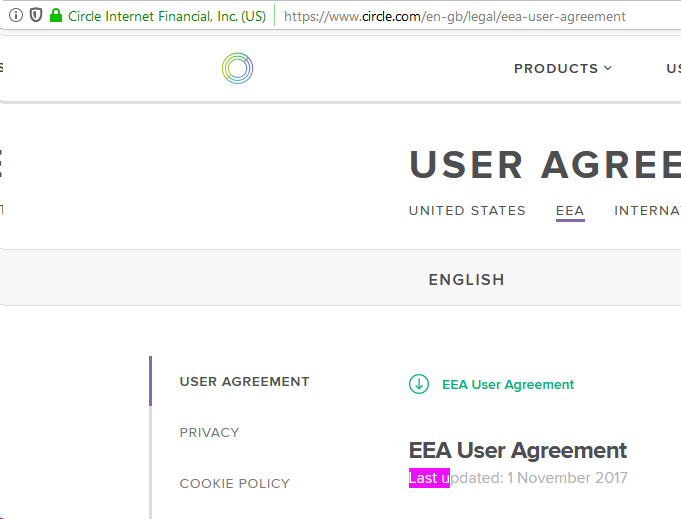
Note how their User Agreement was last updated in 2017. What else happened in 2017?
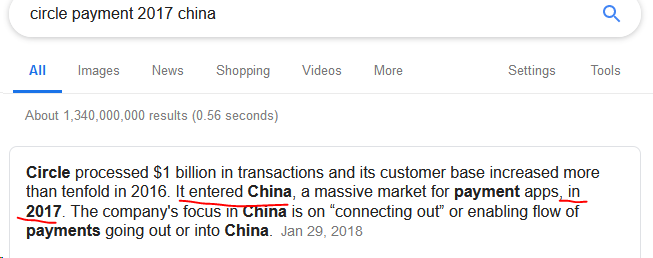
Circle bookended 2017 with entry, followed by a grab for controls. The same sort of dynamic is at play in cryptocurrency.
This leads us to Coinbase, which was also listed in the archived pagelinked above as being inconsistent with their policy. Since they accept cryptocurrency, they in theory shouldn’t be affected by typical regulations right? Unfortunately, that’s not the case, due to them operating in China. In fact, they too fell victim to regulation despite the idealistic decentralized approach of cryptocurrency.
 https://cointelegraph.com/news/china-regulators-visit-coinbase-others-to-discuss-significant-crypto-issues
https://cointelegraph.com/news/china-regulators-visit-coinbase-others-to-discuss-significant-crypto-issues
Admittedly, with Cryptocurrency it’s too soon to tell in absolutes what their ultimate fate will be. But what about the rest of this mess? It’s definitely not too soon, but hopefully not too late either.
Reddit, Discord, And Tencent — Full Circle
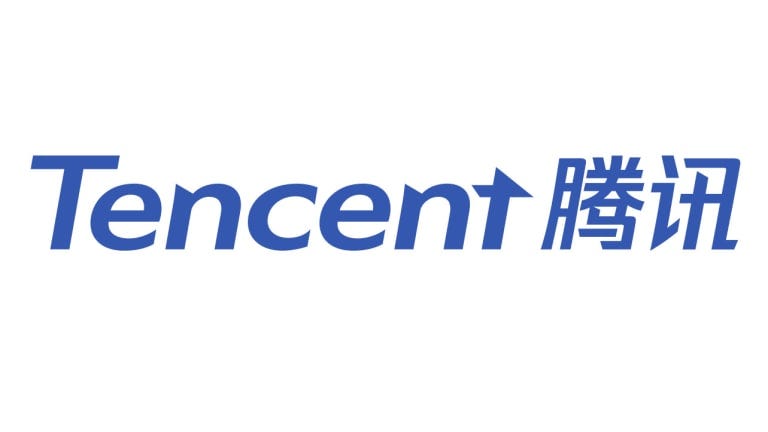
Just as we began with talking about Reddit, Discord, and Tencent, we’ll close out by talking about them. In 2017 — again the same year as the introduction of Xi Jinping Thought into Government policy officially— China’s top cyber watchdog authority issued a number of notices to tech firms, telling them they must “ adhere to the correct political line and moral norms”, among other things. Among the firms targeted? Tencent, who also has chairmen who answer directly to the government. While starting in 2017, this has persisted in 2018, with Tencent stepping up censorship on Wechat and Weibo in November as well.
 Source: Tencent Website
Source: Tencent Website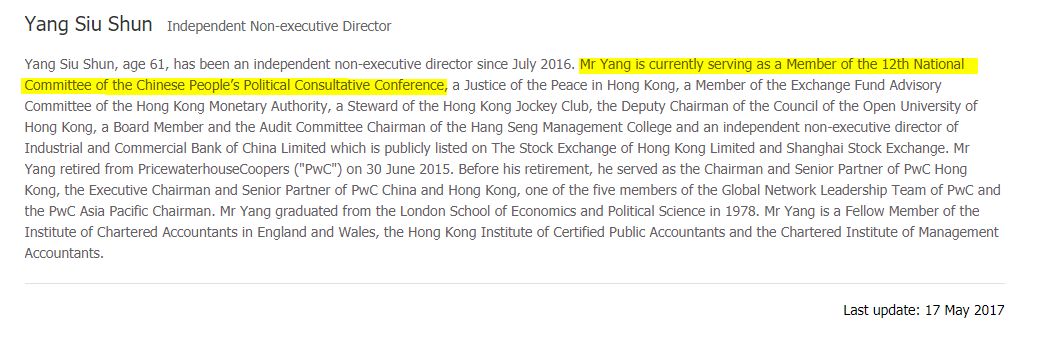 Source: Tencent Website
Source: Tencent Website
Reddit similarly banned a number of subreddits related to the same subgenre of art as mentioned in the opening on February 8th— which is also banned on Discord. Curiously enough, what did they not ban on reddit? That’s right, the Furry equivalent of these subreddits. Note that this comes the same day as this Tencent acquisition; which again, is the same company with a stake in Discord, whose ToS and supposed violations seem to overlap. This leaves us with two questions; one being why not the furry equivalent if this is the case? and two, why only this type of stuff, and not the rest of the media banned by China; say, stuff promoting violence or containing LGBT themes on certain sites.
For the first question, I think this is slightly obvious; there is no concern with this because this is solely a western sub-cultural idea. It hasn’t come in the crosshairs of these conglomerates, because the prevalence of this (especially using the same lingo/term) simply does not exist in their equivalent on places like Weibo and WeChat; however, for these terms, it does.
So then question two — why allow the other type of supposedly offending content on their platform? This is where I think things are interesting. Psychologically, there’s something called creeping normality; sometimes referred to as the “death of a thousand cuts”, a reference to a form of torture originating in imperial China. Now, to be clear, I am not arguing that banning young looking anime characters (or anime altogether for that matter) is a slippery slope to banning Western values. That is not only a gross misunderstanding of this article, but also a firmly insulting detraction from the issues at hand. Remember that research article linked in the introduction about censorship as a distraction tactic though? I am, then however, arguing that they’re clearly starting with the censorship of niche subcultures they are familiar with; especially if these things are “sexual”. By starting with more agreeable things like this, it’s easier to propagate the terms over time. Sure, I don’t personally care about this stuff, but by banning it specifically, they’ve now towed the line of what is and isn’t banned; for example, on Reddit, these user bans were not for pedophilic porn, what landed some users bans were anime characters in swimsuits, something innocuous given you can find tons of imagery similar on Netflix, Funimation, Crunchyroll, and Amazon, among other notable places.
Anime subreddits, such as r/Anime, are not small, but undoubtedly overlap with interests in certain spheres of similar Chinese sub-cultural trends, as previously mentioned. Note that Activision-Blizzard is also partially owned by Tencent, and had their own art change after their old art was apparently deemed too sexual. At what point will we just stop paying attention to censorship altogether, out of association that it’s simply being done on things that are deemed worthy of being censored? There’s definitely been an increase in censorship in the game and media industries as well for example; note that there has not actually been any change in the legality of anime or sexual media since 2008 after a back and forth debate with the government since the late 90s.
As tech and media companies grow into China, these same companies have to decide between appealing to smaller sects of American niche users, or ban these niches to bring them to wider audiences in China (what they would see as a captive market essentially). They’re seemingly always going to do the latter, just because of the theoretical possibility of expanding their audience into a new market of over a billion people. Remember above, the academic paper that looked into the activities of the 50 Cent Army? In it, they also note that Beijing has realized outright censorship is despised, resisted and apparent, and the best influential techniques involve subverting public attention, and then slowly changing things in the background as the outrage is focused on a red herring. Here’s where the idea of “death by a thousand cuts” comes to play; the preparation of platforms to accept the moral and social standards of Chinese users (as dictated by the Chinese Government), which is vastly different to those of western consumers, must be slow and gradual, beginning with things seen to be easily sacrificial.
As much as I’d like to argue that this is just related to anime or niche/sub-cultural hobbies being banned, given the willingness of Google to literally create a search engine devoid of literal core Western values, it’s clear there’s something far more insidious going on. After all, tech giants in the US praising China is not as strange or foreign as you’d think; Zuckerberg of Facebook has done photo-ops in China, recommended Xi Jinping’s book to his employees, complemented their tech industry, and even asked Xi to name his daughter; a level of scary infatuation. Facebook, too, has infamously gotten more and more embroiled in censorship and data-related scandals over the last few years, ironically. As we reach a boiling point culturally, we seem to slide only further away from an actual solution. Will Big Tech embrace censorship? Or will they embrace the values that allowed them to exist?
Furthermore, how far does this stretch? Has the Chinese government realized it can use — ironically, of all things — capitalism to gain beachheads into organizations which hold immense power over what we can see and say? I can see how it’d be easy to say no, but this seems to be a lot more than a simple passing nothing. After all, Xi Jinping not too long ago called for a ideological rally to literally unify minds.
Additional Authorship Credits:
Author’s note from Aoiichi: Almost everybody who is in touch with internet culture in the current year has been touched by a censorship controversy. Month after month, platform after platform, the dominoes have continued to fall until it seems like the last thing falling on our ability to express ourselves, will be a guillotine. But why does this keep happening? Many other writers or commentators have tried their hand to explain the situation, but come up short. While talking with my friend Bonesy regarding a string of curious incidents, it struck me: the missing link behind everything that everyone had missed so far quickly became apparent; the social, cultural and political turmoil of a faraway place that everybody had to have missed so far, simply because it’s normally hidden from us. The piece that me and my co-writers have achieved here, is what we believe to be the first analysis to connect all the elements in this manner.
Addendum:
Disclaimer: The author of this article owns a game development and publishing corporation registered in the US, that uses some of the services talked about in this article. The article does, in no way, shape or form, reflect the opinions, policy, beliefs, or otherwise of the corporation, and only should be noted as being attributed to research done in his personal time as a hobby. Information is presented as is.
Considering what we’ve seen about the so-called “50-cent army” and their influence online in China, we fully expect this post to be targeted. Please keep this in mind, alongside a healthy dose of skepticism, when reading replies, comments, reactions, or otherwise to this article online.
This article was independently researched and written, without the support of external organizations or otherwise. Information is presented as is. If you enjoyed this and would like to help further independent research, consider donating to my ko-fi account: https://ko-fi.com/bonesy, or my friend’s ko-fi account, as he also helped edit and contribute information: https://ko-fi.com/aoiichi Thank you.